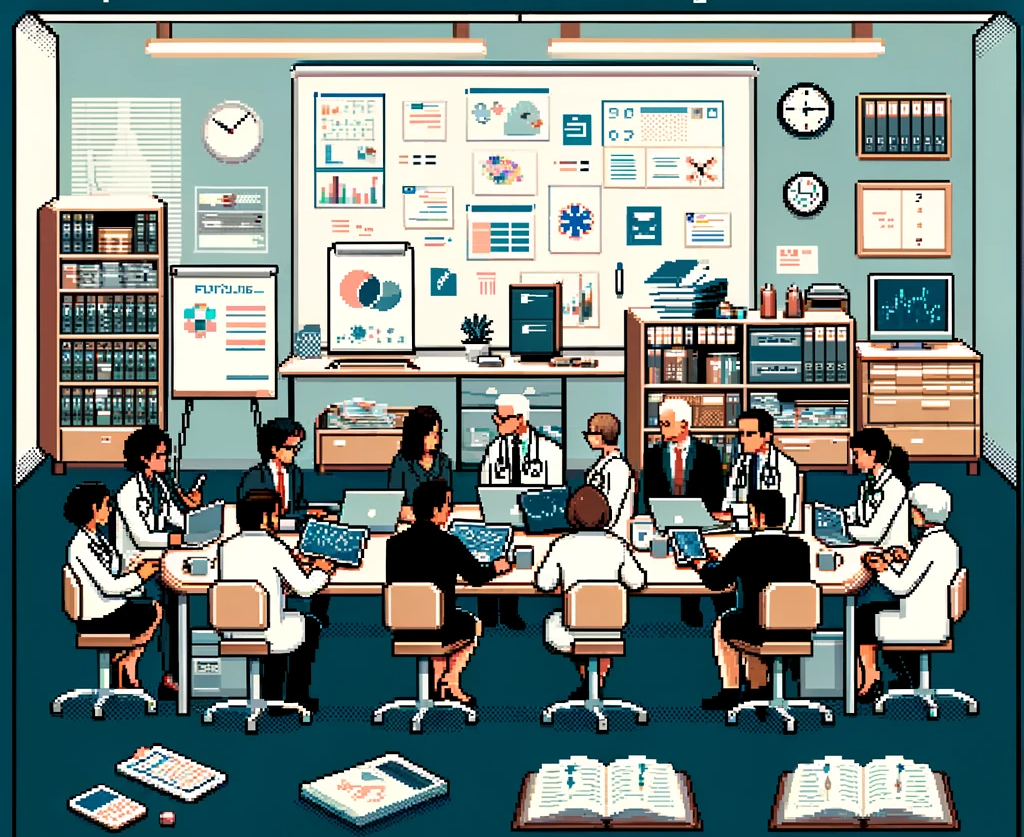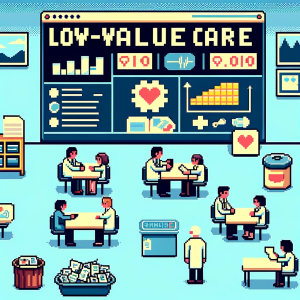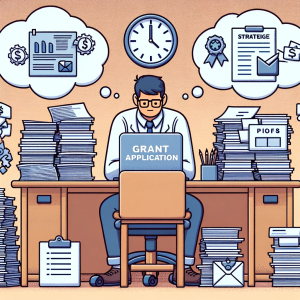
The Ties Between Organizational Learning and Resilience
In an age where business environments are increasingly complex and unpredictable, “Building Organizational Resilience Through Organizational Learning: A Systematic Review” serves as a crucial beacon for understanding the intricate relationship between organizational resilience (OR) and learning (OL). In the quest for survival and success, OR has emerged as a business’s pivotal strategy. It refers to an organization’s ability to anticipate, cope, and adapt in facing adversities. Amidst this, organizational learning (OL) plays a foundational role, acting as both a pathway and an outcome of resilience.
The Triad of Resilience: Anticipation, Coping, and Adaptation
The study underscores that resilience isn’t a monolithic concept but a dynamic process involving anticipation, coping, and adaptation. Anticipation is about foreseeing threats and preparing accordingly. Coping is the immediate response to adverse events, while adaptation refers to the post-crisis adjustments and improvements an organization makes. Learning is intricately linked to these stages, driving an organization’s ability to navigate through them effectively.
The Synergy of Organizational Learning and Resilience
The article delves into the symbiotic relationship between OL and OR. It posits that learning at the organizational level is a multifaceted, continuous social process deeply rooted in an organization’s culture and operational dynamics. As such, learning isn’t just an inherent element of organizational resilience but also a strategic asset that enhances it. The research reviewed in the article indicates that effective organizational learning can significantly fortify an organization’s resilience by enhancing its capabilities to learn, adapt, and self-organize.
The Dynamics of Effective Learning
One of the key insights from the study is the dynamics of effective learning. The research points out that while learning is linked to all three stages of resilience, its effectiveness depends on various factors. This includes the management of experiential learning, a systemic approach to learning, the ability to unlearn outdated methods, and the existence of a conducive context for organizational learning. Each of these elements plays a vital role in ensuring that learning leads to tangible improvements in organizational resilience.
The Role of Unlearning in Organizational Resilience
An interesting aspect highlighted is the role of unlearning in fostering organizational resilience. Unlearning outdated or ineffective practices is as crucial as acquiring new knowledge. This process of unlearning paves the way for new, more effective strategies and practices, contributing significantly to the organization’s adaptive and resilience-building capabilities.
The Importance of Context in Learning and Resilience
The study also emphasizes the significance of context in learning and resilience. A conducive learning environment, leadership support, employee empowerment, and a culture that values knowledge-sharing are highlighted as critical for effective organizational learning and, by extension, resilience.
Implications for Public Health Practitioners
In the realm of public health, the findings of “Building Organizational Resilience Through Organizational Learning: A Systematic Review” hold profound implications. As front-liners in health crises and advocates for community well-being, public health practitioners can glean valuable insights from the relationship between organizational learning and resilience to bolster their strategies and services.
Addressing Public Health Challenges through Organizational Learning
- Anticipating Health Threats: Public health organizations must cultivate a proactive stance by anticipating potential health crises. This includes understanding emerging diseases, environmental threats, and socio-economic factors affecting health. By fostering a culture of continuous learning and vigilance, these organizations can develop anticipatory strategies, much like in the anticipation stage of organizational resilience.
- Coping Strategies in Crisis: The study’s emphasis on coping mechanisms translates directly into public health emergency responses. Public health organizations must learn from past crises to develop robust response plans. This includes efficient resource allocation, staff training, and community engagement during health emergencies. Learning from previous health crises and incorporating those lessons into practice is crucial for an effective response.
- Adapting to New Health Paradigms: Post-crisis, there’s often a shift in health paradigms. Public health entities must adapt by integrating new health policies, technologies, and practices. This adaptation is fueled by learning – understanding what worked, what didn’t, and how future responses can be improved. For instance, the COVID-19 pandemic has underscored the importance of telemedicine, digital health records, and global cooperation, all areas requiring adaptation and learning.
Enhancing Public Health Resilience
- Effective Learning from Health Data: Public health decisions are increasingly data-driven. Organizational learning involves understanding and effectively utilizing health data for better decision-making. This means not just collecting data but also analyzing and learning from it to predict health trends, understand community needs, and allocate resources more effectively.
- Inter-organizational Learning: Public health is a collective effort involving various stakeholders, including hospitals, government agencies, and community organizations. Learning should not be siloed within one organization but should extend across the network. Sharing successes, failures, and lessons across organizations can lead to a more resilient public health system.
- Empowering Public Health Workforce: At the heart of organizational learning is the individual – the healthcare worker, the policy maker, the community health representative. Investing in continuous education and training for the public health workforce is essential. This ensures that they are equipped with the latest knowledge and skills to respond to health crises effectively.
Addressing Barriers to Learning and Resilience
- Overcoming Resistance to Change: In public health, as in any field, there may be resistance to changing traditional practices. Organizational learning requires a culture that embraces change and innovation. This involves leadership commitment, policy support, and incentives for innovation.
- Resource Allocation for Learning Initiatives: Often, public health budgets are tight, and funds are directed to immediate needs. However, investing in learning initiatives such as training programs, research, and technology upgrades is vital for long-term resilience. Securing funding and resources for these initiatives is a challenge that needs strategic addressing.
- Learning from International Best Practices: Public health issues often cross national borders. Learning from international best practices and integrating global health strategies into local contexts can enhance organizational learning and resilience. This requires a commitment to global cooperation and knowledge exchange.
The Need for Further Research
The article concludes with a call for more focused research on the dynamics of effective learning and its impact on organizational resilience. It suggests that understanding the nuances of how learning interacts with other organizational processes to build resilience is crucial. Further empirical studies are needed to verify the effects of learning on organizational resilience and to explore new strategies to enhance the learning capabilities of organizations.
Conclusion
The study comprehensively examines the relationship between organizational learning and organizational resilience. It provides valuable insights for practitioners and researchers alike, emphasizing the need for a strategic focus on learning to enhance organizational resilience. The paper serves as a critical resource for those looking to understand or reinforce the resilience capabilities of their organizations through effective learning strategies.
Join the Vanguard of Public Health Today!
Are you ready to be at the forefront of health advocacy and research? ‘This Week in Public Health’ brings you weekly insights and updates that matter most. From breakthrough research to groundbreaking community initiatives, our newsletter is your ticket to staying ahead in the rapidly evolving world of public health. Subscribe for free and be part of the change you wish to see!



